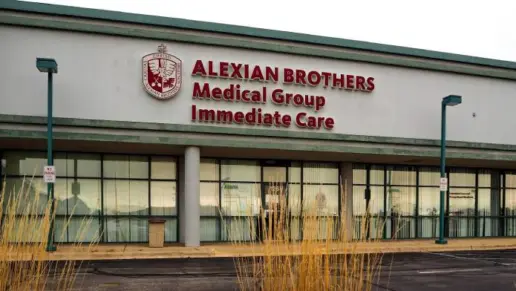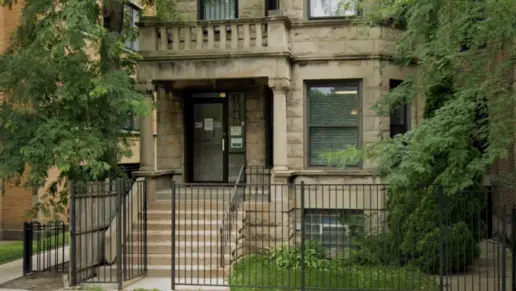About Gateway Foundation Chicago Independence
Located only four miles from downtown, Gateway Foundation Chicago Independence provides affordable and effective Residential and Day Treatment Programs for adults and adolescents seeking substance use disorder treatment.
At Gateway, they understand the importance of integrated substance abuse treatment planning, which means each client is assigned a team of highly-trained, multidisciplinary licensed substance abuse treatment professionals. This provides the most effective and integrated treatment planning from on-site medical doctors, nurses, psychiatrists and addiction counselors.
Conveniently located near the Eisenhower Expressway (I-290), Pulaski Road, and Roosevelt Road, Chicago is easily accessible via public transportation including the Pulaski blue line. When the best treatment for a person’s substance abuse or drug addiction isn’t close to home, it makes it difficult for family members to participate in the treatment of a loved one. Recognizing family involvement is an integral aspect that provides both immediate and long-term benefits to individuals in recovery; most Gateway Treatment Centers have added a valuable feature to assist families that live at a distance through online Family Video Counseling.
Latest Reviews
Rehab Score
Gallery
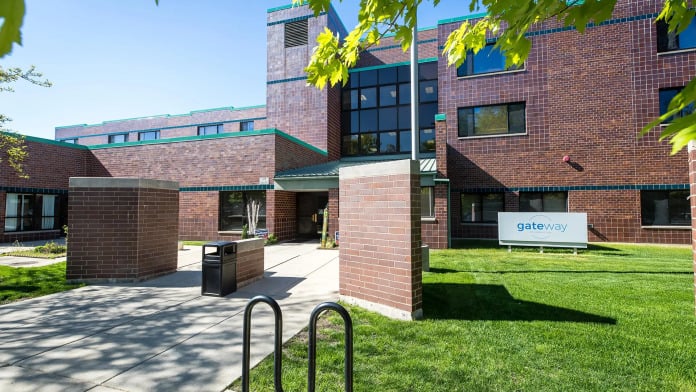

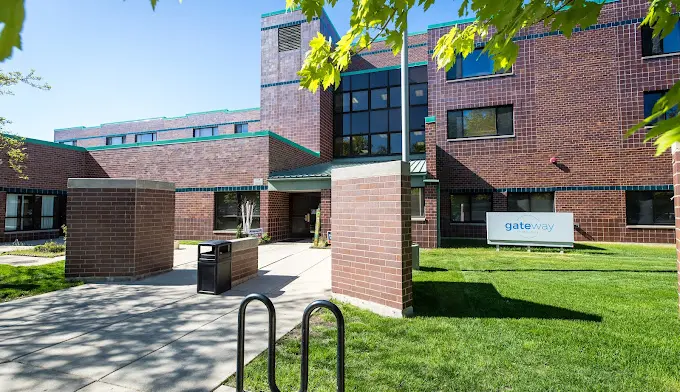
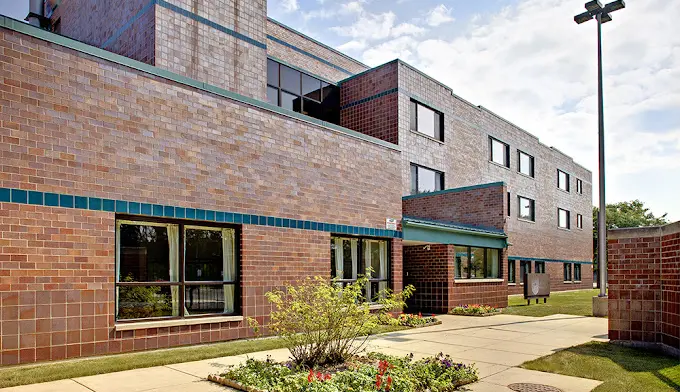
Location
Accepted Insurance
Other Forms of Payment
Private insurance refers to any kind of healthcare coverage that isn't from the state or federal government. This includes individual and family plans offered by an employer or purchased from the Insurance Marketplace. Every plan will have different requirements and out of pocket costs so be sure to get the full details before you start treatment.
Self-pay involves paying for treatment out of your own pocket. You can use savings or credit, get a personal loan, or receive help from family and friends to fund your treatment. If you don't have insurance or your insurance plan doesn't cover a specific program, self-pay can help ensure you still get the care you need.
Financial aid can take many forms. Centers may have grants or scholarships available to clients who meet eligibility requirements. Programs that receive SAMHSA grants may have financial aid available for those who need treatment as well. Grants and scholarships can help you pai for treatment without having to repay.
Addiction Treatments
Levels of Care
Treatments
The goal of treatment for alcoholism is abstinence. Those with poor social support, poor motivation, or psychiatric disorders tend to relapse within a few years of treatment. For these people, success is measured by longer periods of abstinence, reduced use of alcohol, better health, and improved social functioning. Recovery and Maintenance are usually based on 12 step programs and AA meetings.
Drug rehab in Illinois is designed to help people recover from addiction to a number of substances. The length of each program and its intensity tend to vary, and the plan of care is based on your individual needs.
Dual Diagnosis simply refers to two or more disorders or illnesses occurring in the same person. Among those with substance abuse problems, the most common co-occurring mental health problems include depression, anxiety and trauma-related issues. Gateway is a recognized leader among behavioral health care providers in offering substance abuse treatment, as well as treatment for individuals that are diagnosed with a co-occurring disorder. Gateway treats dual diagnosis through comprehensive drug rehab programs that use proven, or "evidence-based" approaches and best practices.
A combined mental health and substance abuse rehab has the staff and resources available to handle individuals with both mental health and substance abuse issues. It can be challenging to determine where a specific symptom stems from (a mental health issue or an issue related to substance abuse), so mental health and substance abuse professionals are helpful in detangling symptoms and keeping treatment on track.
Opioid rehabs specialize in supporting those recovering from opioid addiction. They treat those suffering from addiction to illegal opioids like heroin, as well as prescription drugs like oxycodone. These centers typically combine both physical as well as mental and emotional support to help stop addiction. Physical support often includes medical detox and subsequent medical support (including medication), and mental support includes in-depth therapy to address the underlying causes of addiction.
Programs



Clinical Services
Cognitive Behavioral Therapy (CBT) is a therapy modality that focuses on the relationship between one's thoughts, feelings, and behaviors. It is used to establish and allow for healthy responses to thoughts and feelings (instead of unhealthy responses, like using drugs or alcohol). CBT has been proven effective for recovering addicts of all kinds, and is used to strengthen a patient's own self-awareness and ability to self-regulate. CBT allows individuals to monitor their own emotional state, become more adept at communicating with others, and manage stress without needing to engage in substance abuse.
Dialectical Behavior Therapy (DBT) is a modified form of Cognitive Behavioral Therapy (CBT), a treatment designed to help people understand and ultimately affect the relationship between their thoughts, feelings, and behaviors. DBT is often used for individuals who struggle with self-harm behaviors, such as self-mutilation (cutting) and suicidal thoughts, urges, or attempts. It has been proven clinically effective for those who struggle with out-of-control emotions and mental health illnesses like Borderline Personality Disorder.
Research clearly demonstrates that recovery is far more successful and sustainable when loved ones like family members participate in rehab and substance abuse treatment. Genetic factors may be at play when it comes to drug and alcohol addiction, as well as mental health issues. Family dynamics often play a critical role in addiction triggers, and if properly educated, family members can be a strong source of support when it comes to rehabilitation. Gateway recognizes the immediate and long-term benefits to individuals in recovery when their families are involved in drug rehab, and engages families in counseling and substance abuse education programs. Their Family Programs are designed to answer the questions families have and to help parents, spouses, siblings and significant others learn how to better cope with the substance abuse issues of loved ones in treatment.
Group therapy is any therapeutic work that happens in a group (not one-on-one). There are a number of different group therapy modalities, including support groups, experiential therapy, psycho-education, and more. Group therapy involves treatment as well as processing interaction between group members.
In individual therapy, a patient meets one-on-one with a trained psychologist or counselor. Therapy is a pivotal part of effective substance abuse treatment, as it often covers root causes of addiction, including challenges faced by the patient in their social, family, and work/school life.
Motivational Interviewing has strong scientific support for being a highly effective therapy for those with a substance abuse problem. Instead of trying to convince an individual of the benefits of stopping substance abuse, Gateway Alcohol & Drug Treatment's professional counselors help each person weigh the pros of this behavior against the cons while in drug rehab. Counselors assist individuals in exploring their core values and deeply held goals. These values and goals are usually inconsistent with continued substance abuse, so they become the guiding force toward behaving in a way that is consistent with positive, healthy living.
If you or someone you care about has experienced or witnessed a life-threatening event and is abusing alcohol or drugs to ease painful memories, trauma may be the primary driver of substance abuse. Rather than avoiding the issue, Gateway Treatment Centers can help individuals work through traumatic events and instill in them a sense of resilience with our personalized approach. Through integrated treatment, trauma victims may simultaneously addresses addiction and mental health concerns with trauma-specific treatment approaches to meet individual needs.
Amenities
-
Private Setting
Accreditations

The Joint Commission, formerly known as JCAHO, is a nonprofit organization that accredits rehab organizations and programs. Founded in 1951, the Joint Commision's mission is to improve the quality of patient care and demonstrating the quality of patient care.
Joint Commission Accreditation: Yes
Accreditation Number: 1953

The National Association of Addiction Treatment Providers (NAATP) is a professional association that represents organizations in the field of addiction services. Founded in 1978, NAATP's mission is to advance addiction services and ensure that high-quality addiction treatment is available and accessible.
NAATP Member: Yes
Member ID: 10446
Contact Information
3828 West Taylor Street
Chicago, IL 60624











